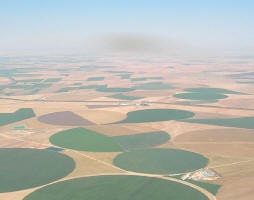- Regional water observation mechanism
- Regional Cooperation Assessment
- Water Quality Monitoring (JP)
- Water scarcity and drought (JP)
- Groundwater (JP)
- Waste water reuse (JP)
- Shared Water Resources Management (JP)
- Linking rural development and water management (JP)
- Waste management
- Water institutions
- Climate Change
- Floods
- Desalination
- Right to Water
- Irrigation
- Satellite data
- Water reports & data
- Hydrology
- Sanitation
- Gender and IWRM
- ArabWAYS
- Non-Revenue Water
- Virtual Water & Water Footprint
- WANA Water Panel
- Water Demand
- Water Governance
- Water Pricing
- Water accounts
- Water nexus Energy
- Geosciences
- Rural Management
 Environment: Commission takes Belgium to Court over untreated urban waste water
Environment: Commission takes Belgium to Court over untreated urban waste water
The European Commission is concerned that Belgium is failing to protect its citizens from the effects of untreated urban waste water. Despite earlier reminders from the Commission, a number of towns in Belgium are still failing to comply with European norms. Discharge of untreated urban waste water is a threat to human health and the environment. In an effort to urge Belgium to speed up its actions in this area, the Commission is therefore taking Belgium to the EU Court of Justice, on the recommendation of Environment Commissioner Janez Potočnik.
Under an EU law agreed back in 1991, Member States had to have in place a system for collecting urban waste water from agglomerations of between 2,000 and 15,000 inhabitants by 31 December 2005. They also had to ensure that water entering collection systems undergoes "secondary" treatment to remove pollutants, to prevent them from being discharged into the sea or freshwater. The Commission first raised the issue of Belgium's compliance with the legislation in 2007, and a letter of formal notice was sent in 2009. This was followed by a reasoned opinion in 2011, indicating that 67 small towns in the Flemish and Walloon regions were still not connected to a suitable sewage system, and 116 small towns in these regions lacked secondary treatment facilities.
The situation has since improved somewhat, and according to the latest information available to the Commission, 4 agglomerations in the Flanders region do not comply with the Directive, while 33 in the Walloon region are falling short of their obligations. But according to current projection, full compliance will not be achieved until 2015, a decade after the deadline. The Commission is therefore taking Belgium to Court.
Background
Agglomerations (towns, cities, settlements) across the European Union are required to collect and treat their urban waste water under the Urban Wastewater Treatment Directive. Untreated waste water can be contaminated with harmful bacteria and viruses and thus presents a risk to public health. It also contains nutrients such as nitrogen and phosphorous which can damage freshwaters and the marine environment by promoting excessive growth of algae that chokes other life, a process known as eutrophication. The Directive requires Member States to ensure that collecting systems are provided for smaller agglomerations which generate waste water equivalent to between 2,000 and 15,000 inhabitants by 2005.
It should be noted that while the present case is restricted to small agglomerations, Belgium also has problems with larger agglomerations. A case on large agglomerations –including Brussels-capital – is at a more advanced stage, and is now before the EU Court of Justice for the second time (Case number C-533/11).
For more information
http://ec.europa.eu/environment/water/water-urbanwaste/index_en.html
See also:
On the March infringement package decisions, see MEMO/13/261
On the general infringement procedure, see also MEMO/12/12
|
Contacts : Joe Hennon (+32 2 295 35 93) Monica Westeren (+32 2 299 18 30) |
| Contact information | n/a |
|---|---|
| News type | Inbrief |
| File link |
http://ec.europa.eu/environment/water/water-urbanwaste/index_en.html |
| Source of information | EU RAPID |
| Keyword(s) | waste, urban waste water |
| Subject(s) | ANALYSIS AND TESTS , CHARACTERISTICAL PARAMETERS OF WATERS AND SLUDGES , DRINKING WATER , DRINKING WATER AND SANITATION : COMMON PROCESSES OF PURIFICATION AND TREATMENT , ENERGY , HEALTH - HYGIENE - PATHOGENIC MICROORGANISM , HYDRAULICS - HYDROLOGY , INFRASTRUCTURES , MEASUREMENTS AND INSTRUMENTATION , METHTODOLOGY - STATISTICS - DECISION AID , NATURAL MEDIUM , PREVENTION AND NUISANCES POLLUTION , SANITATION -STRICT PURIFICATION PROCESSES , SLUDGES , WATER QUALITY |
| Relation | http://eur-lex.europa.eu/LexUriServ/LexUriServ.do?uri=CELEX:31991L0271:EN:NOT |
| Geographical coverage | Belgium |
| News date | 25/03/2013 |
| Working language(s) | ENGLISH |
 you are not logged in
you are not logged in





